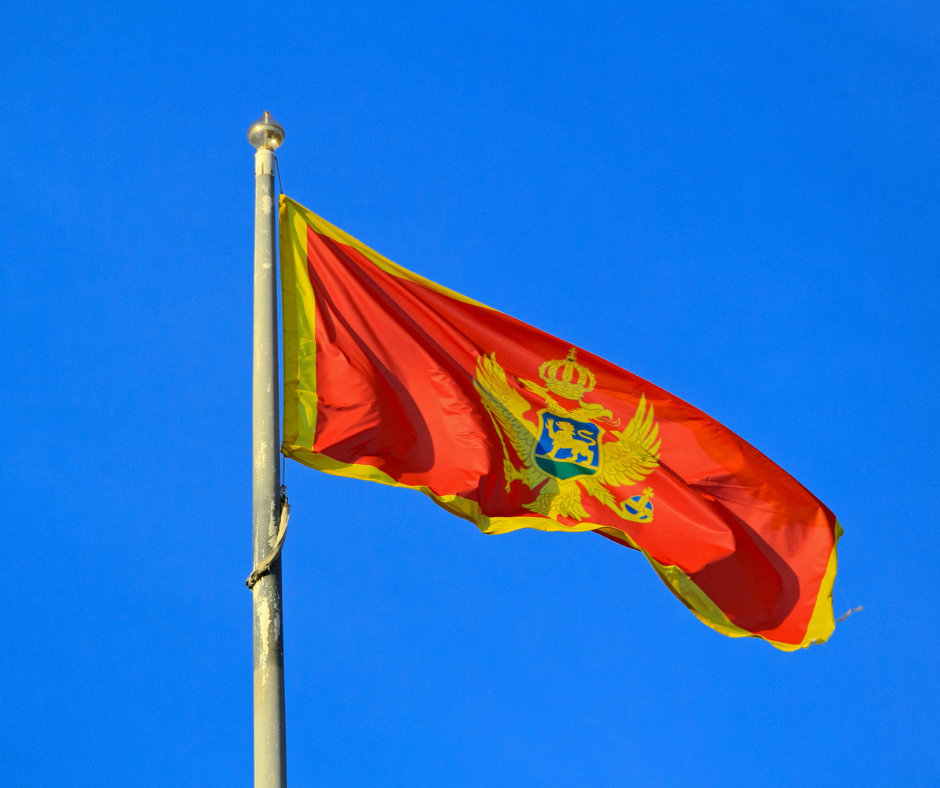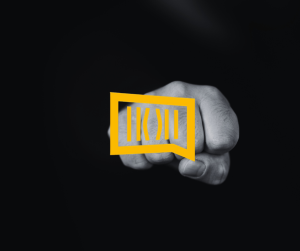Experts say the authorities in Montenegro are inconsistent in the way they respond to reported abuses of online freedom of speech – and who gets prosecuted often depends on who the target is.
Earlier this year, when journalist Vesna Rajkovic Nenadic commented on the Dior slip-on sandals sported by the wife of the mayor of Podgorica in a picture posted on Instagram, she never imagined it could become a matter for the police.
But that’s precisely what happened.
In July, the journalist was summoned by the police on the orders of the public prosecution after Danijela Mujovic, the journalist-turned-businesswoman wife of Mayor Sasa Mujovic, filed a complaint of harassment over a remark made by Rajkovic Nenadic concerning the sandals worn by Mujovic in a photo she had posted.
The case was eventually dropped, but the Media Institute of Montenegro described the incident as a threat to freedom of speech, citing Rajkovic Nenadic as saying: “Questioning a journalist over a satirical comment is a display of power and a reflection of the state of society.”
It was not an isolated case.
In March, misdemeanour proceedings were launched against columnist Brano Mandic over an article published on his platform Normalizuj.me, in which Mandic ridiculed university professor Aleksandar Stamatovic for commenting on a journalist’s cleavage during a television appearance.
Again, the case was dropped, but only after public uproar.
Experts say such incidents speak to the arbitrary regulation of online debate in Montenegro, leaving the public in the dark about the limits to freedom of expression and vulnerable to abuse by authorities.
The legal framework exists, said lawyer Maja Zivkovic, but those tasked with applying it in a rapidly changing world frequently lack the expertise.
Montenegro’s constitution guarantees freedom of expression, online and offline, but this freedom “is not absolute and may be limited by another right”, said Zivkovic.
“The greater issue lies not in the regulations, but in the understanding of the matter itself.”
Montenegro, for example, bans incitement of hatred and threats to security, but Zivkovic said it is not always clear how these laws apply to a social media comment or a meme that goes viral.
“I believe there is a significant lack of precision when it comes to what occurs on social media, and above all, institutional mechanisms are outdated when dealing with what happens online.”
State intervention slow, weak, almost ‘irrelevant’
In April 2023, the then 35-year-old chairman of the audit committee of the Port of Bar, Nikola Ostojic, was sentenced to six months’ house arrest after being convicted of inciting national, racial and religious hatred with Facebook posts he made containing offensive comments about Bosniaks and Islam, which he called a “false faith”.
In June 2020, then 29-year-old water utility employee Velimir Cabarkapa received a two-month prison sentence for posting a parody of Montenegro’s national anthem on Facebook, altering the lyrics to mention drug trafficking and corruption, crimes that have long cast a shadow over the Adriatic state.
Both cases triggered public debate over the limits of freedom of expression – when does an expression of opinion violate the rights of others, and how far can an individual go in criticising the state?
More often than not, harmful or unlawful online comments pass under the radar.
Intervention, said Zivkovic, is often “very slow, weak, or operates with significant delays, sometimes to the point of becoming irrelevant”.
Data obtained via Freedom of Information requests, submitted through a platform run by the transparency and anti-graft NGO MANS, displayed inconsistencies in the way figures concerning such offences are categorised, raising concerns about how trends are being monitored and the use of such data in policymaking.
Authorities in the capital, Podgorica, provided a detailed breakdown by gender, type of offence and number of arrests, but municipalities like Bar and Ulcinj only provided partial or grouped data, while others, such as Budva, did not respond at all.
In total, there were 637 reported offences related to social media activity between 2020 and end-May 2025 – 546 misdemeanour offences and 91 criminal, ranging from incitement of national, racial, and religious hatred to calls for resistance, public disorder, and insulting or severely offending others.
Security vs. freedom of expression
Complaints about the arbitrary application of the law intensified in late October, after police initially arrested two foreign nationals – one from Turkey and one from Azerbaijan – on suspicion of inflicting minor injuries with a knife on a 25-year-old man from Podgorica, after the victim identified them as the attackers. The two were later released when it was established that they had not been involved in the incident.
Subsequently, police identified four other foreign nationals connected to the event, arresting two of them on October 31 as they attempted to leave Montenegro, while continuing to search for the remaining two, whose identities are known. Dozens of Turkish and Azeri nationals were reportedly detained for questioning, but the arrests did not quell the anger unleashed on social media, including hate speech and calls for violence.
Amid reports of damage to property owned by Turkish citizens, the public prosecution launched an investigation, but there has been no sign of a response to the online hatred the stabbing triggered.
In contrast, a man was arrested in 2020 for a Facebook post insulting the then chief of the Montenegrin police, Veselin Veljovic. Rights groups condemned the arrest of Milija Goranovic as crossing a line but the courts fined him 500 euros.
Similarly, the same year, Radovan Rakocevic from Bijelo Polje, in the north, was arrested after he shared an article claiming – incorrectly – that former President Milo Djukanovic had contracted COVID-19. Rakocevic was acquitted, with the court finding that any other judgement would constitute a violation of Article 10 of the European Convention on Human Rights, which guarantees freedom of expression.
Nedjeljko Rudovic, who at the time he was interviewed for this story was director general of the media directorate at Montenegro’s culture and media ministry, said the state must strike a balance between freedom and accountability.
“Universal principles of freedom of expression in the media equally apply to freedom of expression online,” said Rudovic, who has since resigned from the ministry.
But when online posts cross into defamation, threats, or hate speech, Rudovic said it was up to the police and courts to intervene.
“When it comes to violations such as damage to someone’s reputation or rights, spreading hate speech, inciting panic or disorder, it is the responsibility of the prosecutor’s office, and ultimately the courts to act.”
In practice, legal action is often only taken in cases that attract particular public attention, often those involving prominent public figures.
Rudovic said each case must be handled with care. “It is delicate because every case that arises needs to be carefully analysed, and an appropriate position must be taken,” he said.
“Sometimes harsher language, as the European Court of Human Rights has established, does not necessarily mean it’s unlawful speech.”
Civil society alarm
Rights groups say authorities often react to critical speech while simultaneously failing to deal with actual harmful online content.
“We have witnessed cases in which citizens reached out to us claiming they were questioned over social media posts, particularly when their comments were critical of political leaders or institutions,” Civic Alliance programme coordinator Ivan Radulovic told BIRN.
These cases did not involve threats or hate speech, he said, but expressions of “negative opinions or dissatisfaction”.
“We have observed heightened surveillance and pressure on online expression, especially in the context of political events and elections,” Radulovic said.
Maja Nikolic, programme manager at the Association for Responsible and Sustainable Development, UZOR, said that the lack of clear criteria and legal certainty creates a sense of insecurity among members of the public, discouraging them from expressing themselves freely online and opening a door to potential misuse.
At the same time, both Civic Alliance and UZOR reported a rise in misogynistic, sexist, and ethnically motivated harassment online, often targeting women, minorities, and critics of the authorities. Yet few perpetrators ever face punishment.
Civil society groups have themselves become targets. For instance, at the beginning of November, environmental activist Denis Muric from Rozaje, near Montenegro’s borders with Serbia and Kosovo, reported threats made against him and his family on social media, including one made on the Threads app warning him to “watch over your family from now on”. Muric reported the threats to the police, saying he feared for his safety and that of his family.
Radulovic, from Civic Alliance, said education was “essential”.
“It must be the foundation for building a society that understands and values freedom of expression and the responsibility that comes with it,” he said. This includes teaching members of the public, especially younger internet users, about their rights and responsibilities online, as well as training officials to distinguish between criticism and hate speech.
Nikolic called for comprehensive legislation aligned with international norms, telling BIRN: “The judiciary’s capacity to protect digital rights must be strengthened, and consistent enforcement of laws ensured.”
Source: BalkanInsight




